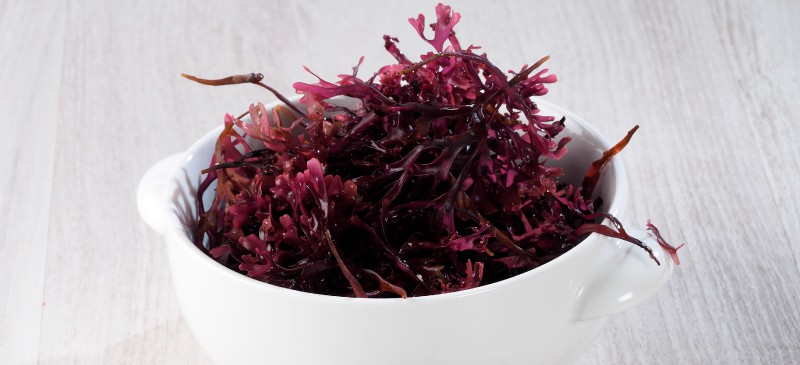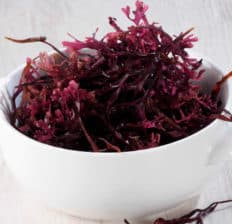This Dr. Axe content is medically reviewed or fact checked to ensure factually accurate information.
With strict editorial sourcing guidelines, we only link to academic research institutions, reputable media sites and, when research is available, medically peer-reviewed studies. Note that the numbers in parentheses (1, 2, etc.) are clickable links to these studies.
The information in our articles is NOT intended to replace a one-on-one relationship with a qualified health care professional and is not intended as medical advice.
This article is based on scientific evidence, written by experts and fact checked by our trained editorial staff. Note that the numbers in parentheses (1, 2, etc.) are clickable links to medically peer-reviewed studies.
Our team includes licensed nutritionists and dietitians, certified health education specialists, as well as certified strength and conditioning specialists, personal trainers and corrective exercise specialists. Our team aims to be not only thorough with its research, but also objective and unbiased.
The information in our articles is NOT intended to replace a one-on-one relationship with a qualified health care professional and is not intended as medical advice.
Sea Moss: Benefits of a Surprising Healthy Food
December 1, 2023

You may have heard about the sea moss “superfood” recently. It’s being touted as an immune-boosting, skin-healing, digestive aid, but like most declared superfoods, sea moss has actually been consumed for centuries.
Although the research on sea moss is limited, there are reports of the seaweed possessing brain-protecting, immune-boosting and digestion-aiding properties. Plus, we know that seaweed is an excellent source of health-promoting nutrients.
So is sea moss all it’s cracked up to be? Let’s find out.
What Is Sea Moss?
Sea moss, also known as Irish moss, is a red seaweed with the scientific name Chondrus crispus. It’s been consumed by humans for thousands of years, found mainly on rocks along the North Atlantic Coast.
Today, it’s planted and processed in several coastal countries, including the U.S., China and Ireland, and used for its carrageenan content.
Carrageenan is commonly used as a food additive for its binding, thickening and stabilizing effects. It’s used in food products including almond milk, coconut milk, hemp milk, creamers, yogurt, canned soups and frozen pizzas.
Carrageenan is also an active ingredient in some conventional medicine solutions.
Sea moss is also valued for its algal polysaccharide, which is extracted from carrageenan and has medicinal and health-related properties. Studies propose that algal polysaccharide provides:
- immunity enhancement
- antioxidant effects
- antibacterial and anti-inflammatory activities
- tumor inhibition
- hypertension prevention
- high cholesterol prevention
- blood sugar control
In addition to its carrageenan and algal polysaccharide content, sea moss is also rich in:
- proteins
- peptides
- amino acids
- lipids
- pigments
The potential health benefits of this red algae are linked to its neuroprotective and immune-boosting constituents.
Nutrition Facts
A two-tablespoon serving of Irish sea moss (about 10 grams) provides approximately:
- Calories: 4.9
- Total Carbohydrates: 1.2 g
- Fiber: 0.1 g
- Sugar: 0.1 g
- Total Fat: 0.02 g
- Saturated Fat: 0.003 g
- Polyunsaturated Fat: 0.01 g
- Monounsaturated Fat: 0.002 g
- Trans Fat: 0 g
- Protein: 0.2 g
- Sodium: 6.7 mg (0.3% DV*)
- Iron: 0.9 mg (5% DV)
- Magnesium: 14.4 mg (3% DV)
*Daily Value: Percentages are based on a diet of 2,000 calories a day.
It also contains some zinc, copper, phosphorus and calcium.
Benefits
There are some potential benefits of sea moss, but the studies evaluating these effects have been done in labs or on animals. There certainly isn’t a clear understanding of how Irish moss may improve the health of humans, but the nutrient content in the seaweed is promising.
1. Aids Digestion
Irish moss works as a prebiotic, allowing it to influence the composition of our gut microbiota. It’s also a mucilaginous food that has a sticky texture and helps stool move through the gastrointestinal tract more easily.
In a study published in BMC Complementary and Alternative Medicine, rats fed Irish moss showed significant improvements in gut microbiota composition.
Researchers suggest that, based on these findings, sea moss may help improve gut health and immune modulation. It was able to increase the population of beneficial bacteria and decrease harmful bacteria, including Streptococcus pneumoniae.
2. May Boost Neurological Health
Studies suggests that red seaweed may have neuroprotective effects because of its ability to alleviate oxidative stress. For this reason, researchers indicate that C. crispus may be a promising ingredient in pharmaceutical applications for potential novel anti-neurodegenerative drugs for humans.
3. Boosts Immune Function
Research published in Applied and Environmental Microbiology indicates that red seaweed enhances host immunity and suppresses the expression of what’s called “virulence factors,” or molecules that are produced by bacteria, fungi and viruses.
This study was conducted in a lab, but researchers concluded that its results suggest that components of C. crispus may play a health-promoting role in animals and humans.
4. Increases Satiety
When combined with liquids, Irish moss has a gel-like texture that is thick and sticky. It acts as a soluble fiber that helps keep you full longer.
Adding Irish moss to meals may increase satiety and, therefore, possibly cut down on the amount of calories you consume. There isn’t scientific evidence to back this up, but the idea is that sea moss works similarly to chia seeds and aloe in this respect.
5. May Have Anti-Tumor Effects
There are some lab studies suggesting that Irish moss has anti-tumor effects that are due to its algal polysaccharide content. Researchers don’t have definitive answers about why this occurs in lab trials, but they indicate that it may be due to polysaccharide’s ability to enhance the body’s immunity and improve its antioxidant activity.
6. Rich in Iodine
A study published in the Journal of Medicinal Food found that iodine in C. crispus is high and bioavailable. Both low and high iodine intake levels can increase the risk of disease, so it’s important to consume the right amount.
Iodine-rich foods support thyroid function, healthy metabolism and brain health. Your thyroid, for instance, must have high enough iodine levels to make thyroxine, a key hormone that works to regulate important, everyday biochemical reactions.
Thyroid disorders that may arise from low-iodine levels can lead to symptoms like sluggish appetite, heart issues, mood changes, weight fluctuations and appetite changes.
7. May Boost Skin Health
Sea moss is used in skin care products because of its antimicrobial and anti-inflammatory properties. It’s also rich in nutrients like omega-3 fatty acids and magnesium.
Using sea moss topically may help hydrate and soothe your skin, while fighting damage and infections. There isn’t any scientific research on the benefits of Irish moss for skin, but its vitamin and mineral content alone is promising for promoting healthy aging.
8. Supports Heart Health
There is evidence that types of sea moss could reduce cholesterol levels. Irish moss and seaweed appear to have anticoagulant properties as well, which benefits heart health.
9. Aids Blood Sugar Control
Many types of sea moss contain fucoxanthin, and research shows fucoxanthin can help control blood sugar. In addition, it’s been studied for its effects on potentially helping prevent diabetes in humans with promising results.
10. Could Benefit Fertility
Sea moss has been used as a traditional medicine to help with fertility in women, and while there is no research specifically showcasing this works, there is animal research that reveals potential fertility benefits. Specifically, it’s been found to have “an enhanced effect in the testicular function of the animal which might increase their fertility and sexual activities.”
How to Use
You can find sea moss in raw, dried or gel form. It’s also available as a powder or capsule, and it’s used as an ingredient in some skin care products.
You may have a hard time finding sea moss at your local grocery store, so purchasing it from a reputable company online is another option.
Irish moss is pretty much flavorless, so it can easily be added to smoothie, juice and soup recipes. Remember that it can be used as a thickener, so it also works well in sauces and even baked goods.
Like algae, you have the option to supplement with sea moss pills and sea moss powder. However, keep in mind that the science on humans is lacking, so check with your health care provider first. This is especially true if you have hypothyroidism.
Risks and Side Effects
When consumed in normal amounts, sea moss is generally safe and may have health benefits. Excessive consumption of Irish moss, however, can mean that you’re ingesting too much iodine.
Too much iodine can cause thyroid disorders, so you need to be careful not to take in too much of the nutrient. If you have Hashimoto’s, thyroiditis or other issues related to hypothyroidism, speak to your doctor about limiting iodine foods.
Final Thoughts
- Sea moss, or Irish moss, is a red seaweed that was originally harvested from rocks along the North Atlantic Coast.
- For thousands of years, sea moss has been used to boost immune function and aid digestion. Today, it’s cultivated in many countries for its potential health benefits.
- There aren’t many studies involving Irish moss on humans, but lab and animal studies suggest that it may help boost brain function, aid digestion, promote thyroid health and support immune function, among other benefits.





